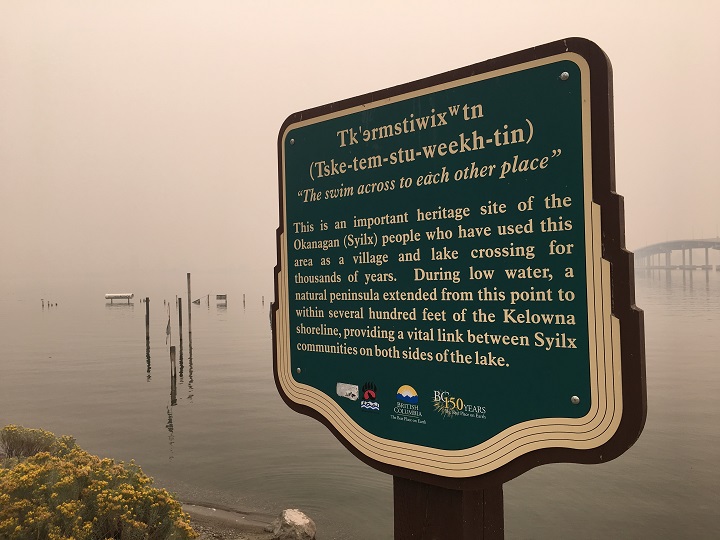Organizers for annual Apple Triathlon have cancelled today’s races in Kelowna due to poor air quality.

The air quality health index (AQHI) for the smoke-filled Central Okanagan was rated at 10-plus, the maximum level, at 7 a.m. Heading into this weekend’s events, organizers said they would delay or cancel races if the AQHI was between nine and 10-plus. The North and South Okanagan were also rated at 10-plus.
Saturday’s cancellation announcement was made at 7:30 a.m., though at 5:52 a.m., organizers tweeted that the Try-A-Tri and kids’ races were going to be delayed by 30 minutes due to air quality. At 6:40 a.m., another tweet was issued, stating those races were delayed yet another 30 minutes, with the 7:30 a.m. tweet announcing that all races for the day had been cancelled.
For the past four weeks, the Okanagan has been under an air quality advisory. On Friday, the B.C. government issued a smoky skies bulletin for most of the province, including the Southern Interior. In part, the bulletin said:

Get daily National news
- Stop or reduce your activity level if breathing becomes difficult or you feel unwell.
- Stay cool and drink plenty of fluids.
- Carry any rescue medications with you at all times.
- Make sure that children and others who cannot care for themselves follow the same advice. Monitor your symptoms
- Different people have different responses to smoke. Mild irritation and discomfort are common, and usually disappear when the smoke clears.
- People with asthma or other chronic illness should activate the personal care plans they have designed with their family physicians.
- If you are unsure whether you need medical care, call HealthLink BC at 8-1-1.
- If you are experiencing difficulty in breathing, chest pain or discomfort, or a severe cough, contact your health care provider, walk-in clinic, or emergency department. If you are having a medical emergency, call 9-1-1.
On Saturday, Interior Health issued a statement from Dr. Trevor Corneil, chief medical health officer regarding smoky skies. It said:
“Wildfires across the province have resulted in smoky skies and poor air quality for many Interior Health communities. During times of poor air quality, it’s important that individuals take steps to protect their health and wellbeing. Over the last week we have received questions from community members and local organizations about the health risks of strenuous outdoor activities.
“In B.C., we use the Air Quality Health Index (AQHI) to make recommendations for modifying outdoor activity and/or avoiding smoke. This index takes into consideration levels of particulate matter, NO2, SO2, and other gases that are known to negatively impact lung capacity, heart function, and blood flow to muscles and brain tissue. Smoke affects everyone differently, but those most at risk include individuals with underlying medical conditions such as asthma, COPD, heart disease, or diabetes, and infants, the elderly and pregnant women.
“The best way to protect your health when skies are smoky is to reduce your exposure and seek cleaner air. When the AQHI is moderate or higher (equal to and/or above 4), Interior Health recommends that individuals consider reducing or avoiding strenuous activities, and follow the recommendations provided on the BC Air Quality website.
“If you are experiencing clinical symptoms of any kind, contact your health care provider or local walk-in clinic. If your symptoms are severe, seek emergency medical attention.”




Comments